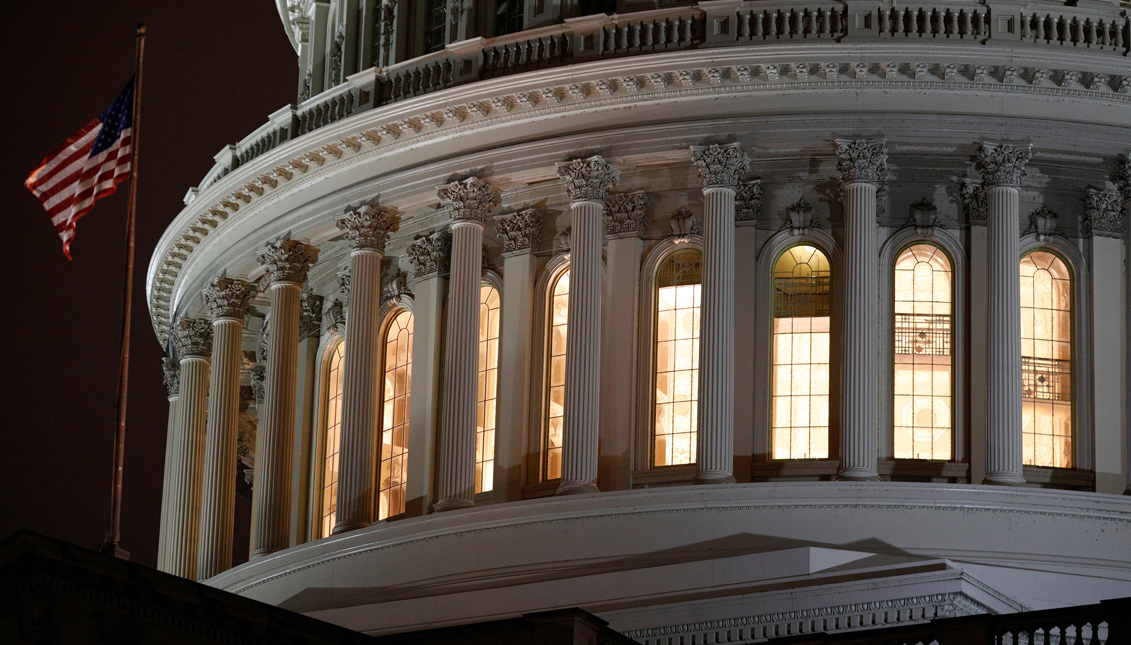
U.S. Senate passes $740 billion defense bill that Trump has promised to veto
The bill will offer a 3% pay raise to soldiers and aims to remove the names of confederate leaders from military facilities.
On Thursday, July 23, the U.S. Senate passed their version of the National Defense Authorization Act (NDAA) for the 2021 fiscal year. The bill allocates $740 billion to the Pentagon, which is $2 billion more than their budget last year. The vote was a resounding 86 to 14.
The defense bill will provide the military with a 3% raise on top of reauthorizing 30 types of bonuses and special pay.
President Donald Trump has said that he will veto the broadly bipartisan legislation because of its inclusion of certain provisions.
The most notable being that the NDAA calls for the renaming of military bases that are currently named after members of the Confederacy.
The president has been a staunch defender of keeping Confederate names on military bases.
In an interview with CBS News’ Catherine Herridge, Trump equated the Confederate flag to the Black Lives Matter movement as both being issues of “freedom of speech.”
“I will Veto the Defense Authorization Bill if the Elizabeth ‘Pocohontas’ Warren (of all people!) Amendment, which will lead to the renaming (plus other bad things!) of Fort Bragg, Fort Robert E. Lee, and many other Military Bases from which we won Two World Wars, is in the Bill!” Trump tweeted on June 30.
Senator Elizabeth Warren did introduce the amendment to rename military bases as she considered the names of Confederate generals displayed on forts to be a “tribute to white supremacy on our military installations.”
A version of her amendment passed with bipartisan support out of the Republican-led Senate Armed Services Committee.
If the president vetoes the legislation he will be met with backlash because both chambers of Congress have more than the two-thirds majority of votes required to override a presidential veto.
RELATED CONTENT
The NDAA passed the Democratic controlled House on Tuesday with a vote of 295 to 125.
The version of the annual defense bill that advanced from the lower chamber also includes the renaming provision, but they wanted the military facilities to do it within one year while the Senate said it should be done in three years.
The call to change the names of military bases comes in the wake of the George Floyd protests that primarily call for criminal justice reform and racial equality.
These protests also saw people across the country demand that statues and flags associated with the Confederacy be taken down.
There have been some symbolic victories in recent weeks.
Mississippi’s Republican governor Tate Reeves signed a bill that would change his state’s flag after 126 years because it bore the cross of the Confederate battle flag. An interim flag is being used until a referendum is held to adopt a new one.
Richmond, VA., which was the capital of the Confederacy during the Civil War, also removed the statues of general Stonewall Jackson and officers Fontaine Maury and J.E.B. Staurt earlier this month.
The renaming provision in the NDAA hopes to be the latest symbolic gesture to activists and Black communities, but a $2 billion increase to the defense budget at a time when Trump is sending federal agents to major cities to silence dissent from protesters across the country is sure to face public backlash.











LEAVE A COMMENT:
Join the discussion! Leave a comment.